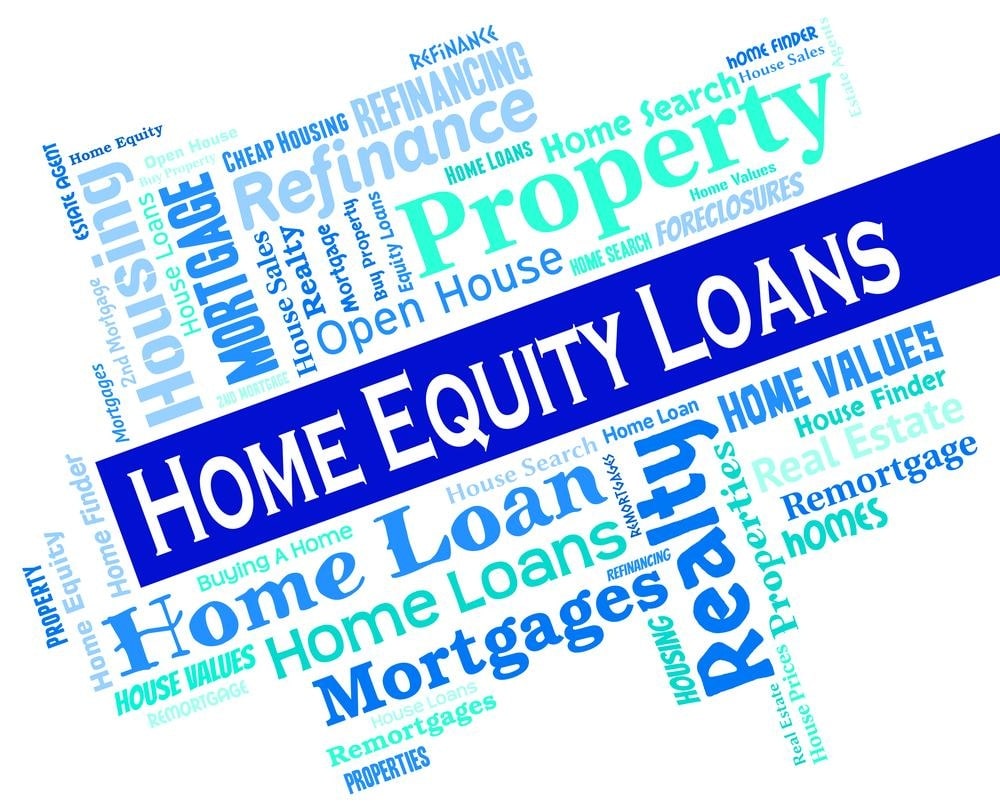When you are looking for additional funds for a financial need, a second mortgage may be a good funding option if you understand how it works. It is similar to a primary mortgage. You can use the funds to purchase investment properties, consolidate personal debts, and pay for other significant expenses that you would not be able to afford otherwise. You may take a second mortgage on an investment property, and it does not have to originate from your primary place of residence. Qualifying for a second mortgage is a little different, but taking a second mortgage on investment properties is an excellent way to acquire needed funds.
Basics of A Second Mortgage
A second mortgage is called “second” because the original mortgage on the same property is still in effect. When people take out a second mortgage on a property, some lenders may see it as a riskier loan, and they may raise the stakes with more stringent underwriting. Second mortgages typically have a higher interest rate. For some investors, the additional cost is worth the mortgage. Homeowners with enough equity in their primary residence can borrow against their equity with a second mortgage. More equity means more borrowing power for the homeowner. However, with that said, the second mortgage has a critical condition: The primary residence will become collateral for the second mortgage. That certainly raises the stakes for someone considering a second mortgage.

Getting A Second Mortgage For A Rental Property
Nothing says you cannot get a second mortgage to purchase an investment property. You may use funds from a second mortgage to pay for a number of big-ticket items and personal expenses. For example, you can use it to finance home renovations, consolidate debt, and even pay a part of the down payment of the first mortgage, avoiding Private Mortgage Insurance (PMI). In addition, you can use the funds from the second mortgage for part of the down payment in buying a rental property for investment. If that is your intention, here are some suggestions for using it on a rental property.
Understanding of the Process
If you are sure that you can pay back the loan, a second mortgage is a good source of funds for your rental property investment. You should be aware of the risks and disadvantages, however. If you plan on taking this approach in acquiring funds, ensure you are completely clear with all aspects of the loan, your obligations, and the consequences. A second mortgage will use your primary residence as collateral, have a higher interest rate, and bring you more monthly bills. You want to be confident that you can pay the additional monthly debt from the second mortgage on time. This will include mortgage payments, property taxes, utility expenses, rent, homeowner’s insurance, and other fees associated with the subdivision where the investment property is located.
Figure Out The Kind Of Second Mortgage Desired: There are two types of second mortgages that you can choose from:
- Home equity line of credit (HELOC)
- Home equity loan (HEL)
Each of these mortgage types has advantages and disadvantages. Depending on what is the most appropriate for your situation will determine which you should apply for. A HELOC functions in a way that is similar to a credit card. If you borrow x amount, you pay back x amount. On the contrary, a home equity loan is good if you need a large amount of money upfront, such as a down payment on a rental property.
Monitor Your Credit Score
Lenders want to lower their risk as much as possible. That means they are more willing to make a loan to borrowers with a high credit score. If you plan to take out a second mortgage, ensure that your credit score is high enough so lenders will see you as a good risk. Your credit report will give lenders a picture of your credit health, and they will use it to determine if they should lend you the money.
Figure Out How Much Equity Is In Your House
Since you will be borrowing against the equity of your house, you should at least find out how much equity you have in your house. To do so, you may need an updated appraisal of your house to get an accurate valuation. The lender will look at how much equity you have in your house and will base your second mortgage on this amount. A more significant amount of equity means your lender may approve you for a bigger second mortgage.
Shop Around and Compare
If your credit is good and you have sizable home equity, you can start shopping for an appropriate lender. If you have a good relationship with the lender of your first mortgage, apply for a second mortgage with them. However, look at other lenders to see if their interest rates and loan terms could be more agreeable to you. Refrain from settling for the first lender on your list. Look for lenders with experience dealing with investors because their terms might be more favorable. Request interest rate information and find out what type of loans they made for rental property investments. Focusing on lenders that are friendly to investors will keep the process smooth. You will be the one paying the bills, so explore all options to get yourself the best loan terms.
Sign the Loan Agreement
When you have found a second mortgage with a reasonable interest rate and loan terms, you can prepare to sign the agreement. Before you sign, read over the contract and everything in the fine print. Review the lending disclosures carefully and watch out for hidden penalties.

Use Loan Comparison Websites
Some websites allow you to compare loan packages side-by-side. They are beneficial when you are looking for the best loan terms. However, these websites do not pull credit checks to provide information. Instead, they provide a general guide on what you can expect and do not represent your final rate.

Prepare For Additional Expenses
Before you take out that second mortgage, identify the additional costs, you will incur when you purchase the rental property. These additional costs may include monthly payments on the second mortgage, property insurance, taxes, maintenance, property management, and furnishings.
If you don’t have the time to manage your second property, you may need to hire a property manager. This is particularly true if it is a rental or vacation property. The property manager will handle all aspects of finding and screening renters, marketing your property, dealing with maintenance and repair issues, and more. Property management fees are usually a percentage of your rental income. Therefore, it is essential to factor in this expense as part of your monthly costs. It is an additional expense, but in return, you get peace of mind that someone reliable is taking care of your investment property.
You will also have to estimate how much you will owe in property taxes and insurance premiums. How you use the property will determine what kind of deductions you can take and how the property will be taxed. In addition, the location of your investment home will impact the type of insurance you need to take out. For instance, a house by the beach might need flood insurance. If you need to become more familiar with these types of additional premiums, consult with a financial advisor so you can figure out the best way to budget for these expenses.
Lastly, there will be costs associated with property maintenance and furnishings. Your second house will need appliances, furniture, and other things necessary for daily living, whether you plan to rent it out or use it yourself as a vacation home. In addition, after you furnish the house, you have to plan for regular property maintenance, including unexpected repairs. These all add to the expense, and these amounts can vary. Therefore, when you budget ahead, be on the safe side and budget generously.
What’s the Difference between a Second Mortgage Vs. a Home Equity Loan?
A home equity loan, or HEL, is one of two primary types of second mortgages. The second is a home equity line of credit or HELOC. The names of these two types of mortgages are very similar, and they often cause confusion among consumers. They are similar, but they have subtle and significant differences. A HELOC functions much like an extension of credit. You may borrow up to the limit of your equity, whereas a HEL gives you one lump sum of money upfront.
Typically, in a home equity loan, the lender will evaluate the amount of the equity and create a loan based on a percentage of that equity. The borrower is rarely allowed to borrow against the total amount of the equity. Instead, the lender will determine what percentage is acceptable to lend, and the interest rate is fixed based on the borrower’s risk profile. The borrower receives the amount in one lump sum.

The Advantages and Disadvantages of a Second Mortgage for Rental Property
Investors have long relied on second mortgages to finance investments. It is a reliable source of funding, and having access to this gives the investor a higher chance of securing a deal. However, taking out a second mortgage does come with limitations. There are advantages and disadvantages. Only when the advantages outweigh the disadvantages should taking a second mortgage be considered. Below are some common advantages and disadvantages to consider about second mortgages.
Advantages
Home equity is a stagnant source of funds and does not earn any income for the homeowner. A second mortgage allows the homeowner to tap into this source and make the money work for them.
- The funds from a second mortgage can be used to make home improvements.
- The funds can be used to invest in income properties. The second mortgage investment property has the potential to generate healthy returns on equity that otherwise would not be used.
- A second mortgage can help pay off loans and debts with a high-interest rate.
Disadvantages
- A second mortgage uses the asset against which the loan is taken as collateral. So, if you miss a payment on the second mortgage or you do not meet specific loan terms were not met, it can result in losing the original home that secured the loan.
- Suppose an investor wants a low-interest rate on a second mortgage. He must have strong credit. He also must have a clear plan for making a profit from the investment. If there is no plan in place, there is a high risk of turning this equity into more debt.
- A second mortgage will remove some liquidity from the homeowner’s total assets. In times of a financial crisis, this will make them more vulnerable.
- The interest charged on a second mortgage is not always tax deductible. Only when you use the loan to make property improvements would you be able to deduct this interest expense from your taxes.
Use Your Second Mortgage To Make Money For You
Although a second mortgage is a great way to obtain funds for a significant expense, using your primary residence’s equity exposes you to risk. The second mortgage is secured by your home’s equity, which means your house is the loan’s collateral. If anything happens and you cannot make payments on the second mortgage, the lender has the option to take possession of your home. So, second mortgages are not something that you should take lightly. You should only consider a second mortgage if you have a clear plan for investing these funds and turning them into a profit-making venture.
Can You Deduct the Interest Paid on a Second Mortgage From Taxes?
A popular benefit to investing in real estate is the tax deductions. If you plan it out properly, you can take advantage of tax deductions to reduce your yearly tax obligations, which means higher profits for you. One such benefit is the deduction for the interest paid on your primary mortgage. There is also a chance for second mortgages to take similar deductions, but there are more restrictions. For example, to qualify for the tax deduction on your mortgage interest paid, you must live in your second home for a minimum of two weeks, or greater than ten percent of the time when the property was rented out during the tax year, whichever is longer. To ensure you are taking deductions correctly, consult a tax professional.

Investment Property Vs. Second Home
A second home is a property you live in sometimes during the year. An investment property is only for income generation, and you do not need to live in it for any portion of the tax year. The down payment and mortgage rates are higher for investment properties. Lenders see investment properties as a greater risk than second homes. If the borrower runs into financial trouble, the first property they will divest is usually the investment property. Before a lender approves a loan for an investment property, the lender might require the borrower to have experience with property management.
Alternative Mortgages
Other ways besides a second mortgage allow you to acquire funds. Several options are listed below:
- Cash-out refinance: This is a quick way for an investor to get access to cash quickly. However, they have specific application requirements and interest rates that you should consider.
- Private lender: If you don’t want to risk your home’s equity, you can contact your network to see if anyone is willing to serve as a private lender. The loan terms are negotiable between you and the lender, and you can get as creative as you and the private lender are comfortable with.
- Personal loan: You may take out a personal loan, which does not use any collateral. However, personal loans depend on your current financial circumstances and ability to repay the loan.
Always weigh the pros and cons of each type of loan before you make your decision.

In Summary
Many investors continue to rely on a second mortgage to fund their investment properties. Although there is potential for lucrative returns, these loans have risks. When the borrower’s primary residence is used as collateral, if any of the loan obligations of the second mortgage still need to be met, the borrower can risk losing his primary home. Consequences can be severe. Second mortgages are a powerful way to fund an investment, but only if there is a clear plan to turn that into profit. You must understand all risks associated with a second mortgage before you put the equity of your primary home on the line.
We hope you found this article helpful. At Liquid Logics, it is our goal to provide private lenders with the best tools available to help steamline their lending business. Build with both the lender and their clients in mind, Liquid Logics loan software provides private lenders the flexibility and security they need for their business. Do you have questions on how we can help your business grow? Contact us to schedule a demo.
